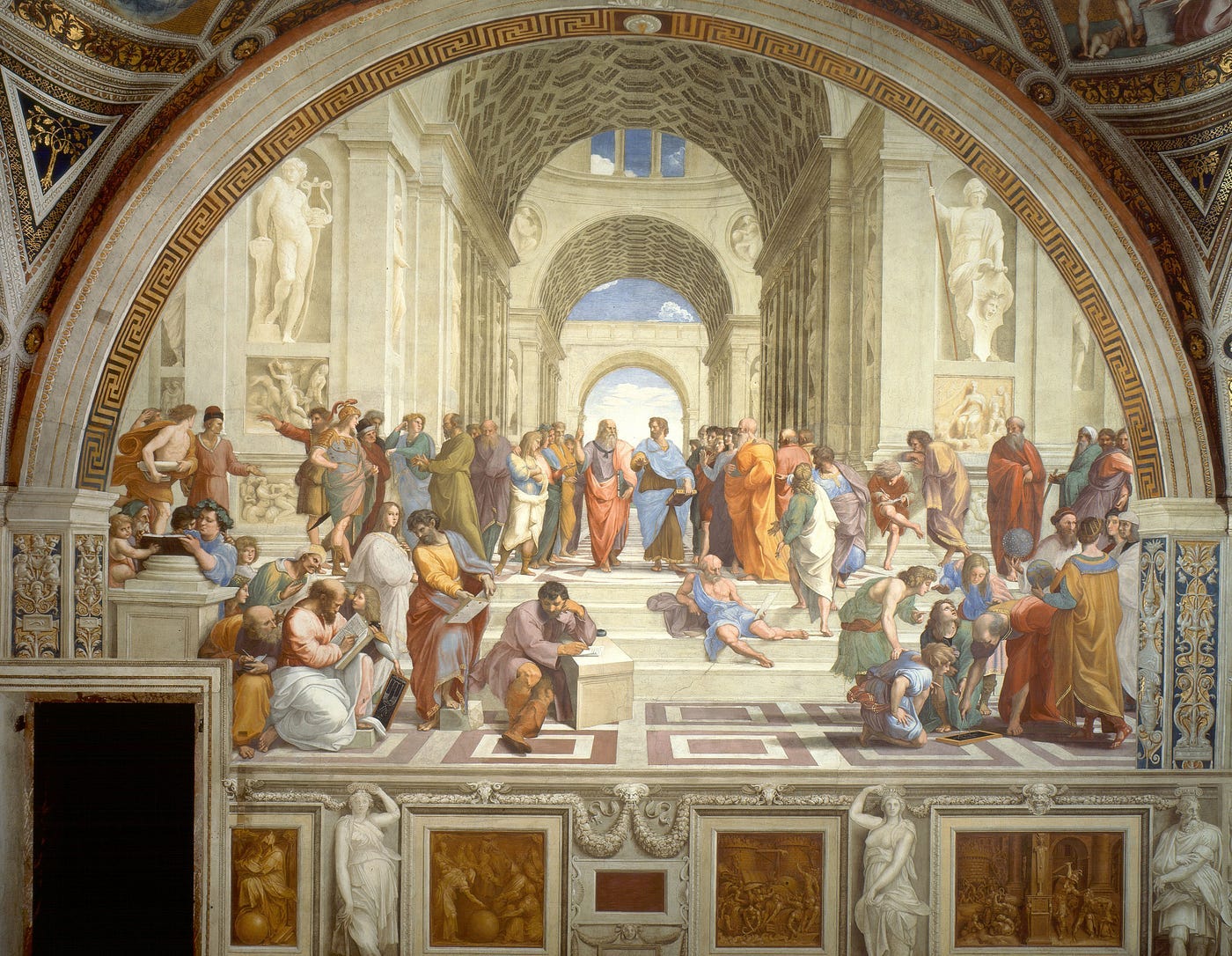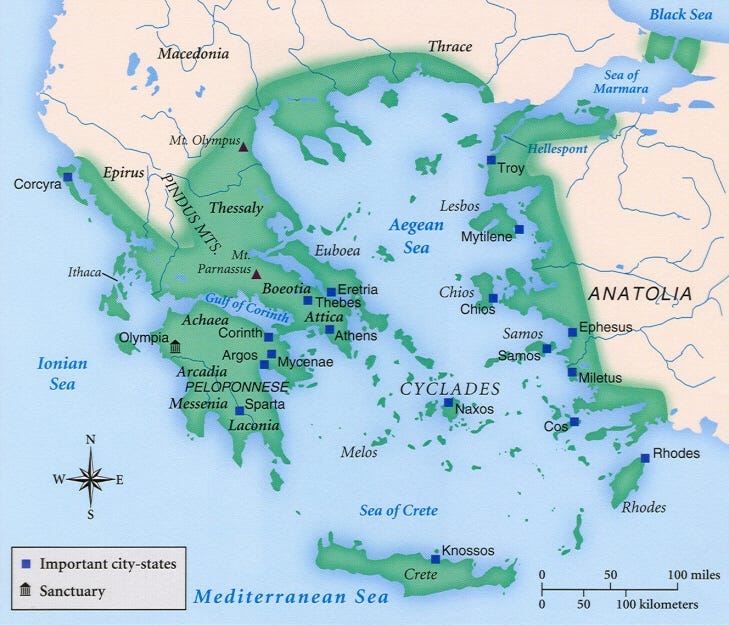Daniel 2:24–30 — Semitic Language Study (Excursus on Wisdom Traditions)
כָּל־קֳבֵל דְּנָה דָּנִיֵּאל עַל עַל־אַרְיֹוךְ דִּי מַנִּי מַלְכָּא לְהֹובָדָה לְחַכִּימֵי בָבֶל אֲזַל וְכֵן אֲמַר־לֵהּ לְחַכִּימֵי בָבֶל אַל־תְּהֹובֵד הַעֵלְנִי קֳדָם מַלְכָּא וּפִשְׁרָא לְמַלְכָּא אֲחַוֵּא׃ אֱדַיִן אַרְיֹוךְ בְּהִתְבְּהָלָה הַנְעֵל לְדָנִיֵּאל קֳדָם מַלְכָּא וְכֵן אֲמַר־לֵהּ דִּי־הַשְׁכַּחַת גְּבַר מִן־בְּנֵי גָלוּתָא דִּי יְהוּד דִּי פִשְׁרָא לְמַלְכָּא יְהֹודַע׃ עָנֵה מַלְכָּא וְאָמַר לְדָנִיֵּאל דִּי שְׁמֵהּ בֵּלְטְשַׁאצַּר האיתיך כָּהֵל לְהֹודָעֻתַנִי חֶלְמָא דִי־חֲזֵית וּפִשְׁרֵהּ׃ עָנֵה דָנִיֵּאל קֳדָם מַלְכָּא וְאָמַר רָזָה דִּי־מַלְכָּא שָׁאֵל לָא חַכִּימִין אָשְׁפִין חַרְטֻמִּין גָּזְרִין יָכְלִין לְהַחֲוָיָה לְמַלְכָּא׃ בְּרַם אִיתַי אֱלָהּ בִּשְׁמַיָּא גָּלֵא רָזִין וְהֹודַע לְמַלְכָּא נְבוּכַדְנֶצַּר מָה דִּילֶהֱוֵא בְּאַחֲרִית יֹומַיָּא חֶלְמָךְ וְחֶזְוֵי רֵאשָׁךְ עַל־מִשְׁכְּבָךְ דְּנָה הוּא אנתה מַלְכָּא רַעְיֹונָךְ עַל־מִשְׁכְּבָךְ סְלִקוּ מָה דִּי לֶהֱוֵא אַחֲרֵי דְנָהוְגָלֵא רָזַיָּא הֹודְעָךְ מָה־דִי לֶהֱוֵא׃ וַאֲנָה לָא בְחָכְמָה דִּי־אִיתַי בִּי מִן־כָּל־חַיַּיָּא רָזָא דְנָה גֱּלִי לִי לָהֵן עַל־דִּבְרַת דִּי פִשְׁרָא לְמַלְכָּא יְהֹודְעוּן וְרַעְיֹונֵי לִבְבָךְ תִּנְדַּע׃
Upon this matter, Daniel departed to Arioch whom the King appointed to destroy the wise men of Babylon. He went and so said to him “of the wise men of Babylon, do not destroy them. Bring me before the King and I will make known the interpretation to the King.” Then Arioch hurriedly brought Daniel before the king and said to him, “I have found among the exiles from Judah a man who can make known the interpretation to the king.” The king responded and said to Daniel, whose name was Belteshazzar, “Are you able to make known to me the dream which I saw, and its interpretation?” Daniel answered before the king and said,
“The mystery which the king has asked, no wise men, enchanters, magicians, or diviners are able to declare to the king. But there is a God in heaven who reveals mysteries, and He has made known to King Nebuchadnezzar what will happen in the latter days. Your dream and the visions of your head upon your bed — this is what they are: As for you, O king, on your bed thoughts came up regarding what will be in the future, and He who reveals mysteries has made known to you what will be. But as for me, this mystery was not revealed to me because of any wisdom that I have more than any other living person, but in order that the interpretation may be made known to the king, and that you may understand the thoughts of your heart.”
As we have been exploring in the previous entries, the function of the book of Daniel is tied to the presence of the Torah in exile. Jerusalem is a complete afterthought, and the modus operandi is to live scripturally in the land that Abram (before he was Abraham) had started in. The biblical story parallels Homer’s Odyssey in this regard, in that it is a sort of homecoming. But unlike the Odyssey, even though Babylon is the ancestral home of the Hebrews (via Abraham), it is NOT their true home according to God. In fact, their “true home” is anywhere the voice of the shepherd leads them. It led Abraham to the Syro-Arabian wilderness, but led the prophets throughout the Levant and even as far north as Nineveh in the case of Jonah. That is because the residence of the scriptural God is wherever his scripture is. This is a feature that the New Testament understands and testifies to ad nauseam. One of the most explicit examples is found in the pericope of the Samaritan woman, where Jesus tells her:
Λέγει αὐτῇ ὁ Ἰησοῦς, Γύναι, πίστευσόν μοι, ὅτι ἔρχεται ὥρα, ὅτε οὔτε ἐν τῷ ὄρει τούτῳ οὔτε ἐν Ἱεροσολύμοις προσκυνήσετε τῷ πατρί
Jesus said to her, Woman, believe me that a time is coming when neither on this mountain nor in Jerusalem will you worship the Father. — Jn. 4:21
The course of the literature is levying a critique against the common feature in the Greek epics that appeals to the national unity of the dispersed Greek tribes.
The scriptural authors were not interested in this. They saw the vanity of the things that men build — most especially the city. This is what separated them from their contemporary Berossus, who wrote the Babyloniaca, which sought to mold the “history” of Babylon after the model of Greek historians such as Herodotus. Three centuries later, Josephus Flavius would undertake a similar task with his Jewish Antiquities and Jewish War, cast after the manner of Virgil’s Aeneid. All of these works outlined a cultural ethos for the ethnos, but scripture set out to take Babylonian culture and toss it in the wilderness for the unseen God of the desert to create his own people from his word:
וְעָנִ֨יתָ וְאָמַרְתָּ֜ לִפְנֵ֣י ׀ יְהוָ֣ה אֱלֹהֶ֗יךָ אֲרַמִּי֙ אֹבֵ֣ד אָבִ֔י וַיֵּ֣רֶד מִצְרַ֔יְמָה וַיָּ֥גָר שָׁ֖ם בִּמְתֵ֣י מְעָ֑ט וַֽיְהִי־שָׁ֕ם לְגֹ֥וי גָּדֹ֖ול עָצ֥וּם וָרָֽב׃
And you shall answer and say before Yahweh your God, ‘A perishing Aramean was my father, and he went down to Egypt and sojourned there few in number, and there they became a great nation, mighty and numerous.’ — Deut. 26:5
Scripture is not the narrative of a people building a nation, but of a God building a people through the Word — even in exile. Daniel is not the tale of a return to land, but of a remnant being re-formed by Torah in the land they had left. The true homeland is not Jerusalem nor Babylon — it is wherever the voice of the shepherd leads, and wherever his Word is obeyed. Hence, Daniel subverts the epic mode of Greek historiography, dismantling the glory of cities and re-centering the glory of God in the wilderness.
Even in Babylon, at this point a few centuries before the conquest of Alexander the Great, the Word of God can bring the mighty Nebuchadnezzar down to the level of a wild beast. He assumes control. The text changes to his language of Aramaic, and he even changes Daniel’s name to Belteshazzar — but this is all a ruse as he cannot work against God’s plans, as they will be revealed to him in the next few verses.
The power of this early section of Daniel is what defines the entire scriptural premise:
רָזָה דִּי־מַלְכָּא שָׁאֵל לָא חַכִּימִין אָשְׁפִין חַרְטֻמִּין גָּזְרִין יָכְלִין לְהַחֲוָיָה לְמַלְכָּא׃ בְּרַם אִיתַי אֱלָהּ בִּשְׁמַיָּא גָּלֵא רָזִין וְהֹודַע לְמַלְכָּא נְבוּכַדְנֶצַּר מָה דִּילֶהֱוֵא בְּאַחֲרִית יֹומַיָּא
The mystery which the king has asked, no wise men, enchanters, magicians, or diviners are able to declare to the king. But there is a God in heaven who reveals mysteries, and He has made known to King Nebuchadnezzar what will happen in the latter days.
and
וַאֲנָה לָא בְחָכְמָה דִּי־אִיתַי בִּי מִן־כָּל־חַיַּיָּא רָזָא דְנָה גֱּלִי לִי לָהֵן עַל־דִּבְרַת דִּי פִשְׁרָא לְמַלְכָּא יְהֹודְעוּן וְרַעְיֹונֵי לִבְבָךְ תִּנְדַּע
He who reveals mysteries has made known to you what will be. But as for me, this mystery was not revealed to me because of any wisdom that I have more than any other living person, but in order that the interpretation may be made known to the king, and that you may understand the thoughts of your heart.
The second quotation is even more paramount here. The mystery (רזא) was not revealed to Daniel because of his particular wisdom, but because God (גָּלֵא רָזִין the revealer of mysteries) uncovered it to him. As I have been suggesting in this series, this is a cultural critique that strikes at ancient wisdom traditions in general, but most especially the wisdom traditions of ancient Babylon, Persia, and Egypt — all three of which the Greeks looked up to as younger (but more arrogant) brothers. The last thing Scripture wanted to do was create another wise sage out of its characters. The approach is patently different. The prophets are chosen not because of their wisdom or ability, but because God saw fit to use them for his purposes. They are mouthpieces, but not sources of the revelation itself. Even Moses, the prophet par excellence, couldn’t even speak properly:
וַיֹּ֨אמֶר מֹשֶׁ֣ה אֶל־יְהוָה֮ בִּ֣י אֲדֹנָי֒ לֹא֩ אִ֨ישׁ דְּבָרִ֜ים אָנֹ֗כִי גַּ֤ם מִתְּמֹול֙ גַּ֣ם מִשִּׁלְשֹׁ֔ם גַּ֛ם מֵאָ֥ז דַּבֶּרְךָ אֶל־עַבְדֶּ֑ךָ כִּ֧י כְבַד־פֶּ֛ה וּכְבַ֥ד לָשֹׁ֖ון אָנֹֽכִי׃
And Moses said to Yahweh, ‘o my Lord I am not a man of words, neither yesterday nor before nor since your speaking to your slave for I am one of a heavy mouth and tongue.’ — Ex. 4:10
In an interesting move, the character Stephen in the book of Acts mentions Moses’s education in Egypt:
καὶ ἐπαιδεύθη Μωϋσῆς ἐν πάσῃ σοφίᾳ Αἰγυπτίων ἦν δὲ δυνατὸς ἐν λόγοις καὶ ἔργοις αὐτοῦ
And Moses was educated in all of the wisdom of the Egyptians, and he was powerful in his words and his deeds. — Acts. 7:22
And then it ends up being inconsequential because Stephen underscores that God was the one who taught Moses the oracles, irrespective of Moses’s education in Egypt. Or, in the words of this pericope, Moses received them from God:
οὗτός ἐστιν ὁ γενόμενος ἐν τῇ ἐκκλησίᾳ ἐν τῇ ἐρήμῳ μετὰ τοῦ ἀγγέλου τοῦ λαλοῦντος αὐτῷ ἐν τῷ ὄρει Σινᾶ καὶ τῶν πατέρων ἡμῶν ὃς ἐδέξατο λόγια ζῶντα δοῦναι ἡμῖν
This is he who was in the church in the wilderness with the angel who spoke to him on Mount Sinai, and our fathers, the one who received the living oracles to give to us. — Acts. 7:38
Why did Stephen mention Moses’s education if it wasn’t in the Torah and does not affect his prophethood? It’s a strange moment. Despite his lofty education, the only λόγια that mattered in the end were those that were handed down to him. Paul often speaks like this. Per his defense in Galatians that his gospel came directly from God, he uses the verbs παραλαμβάνω paralambanō — I receive (handed down) and παραδίδωμι paradidōmi — I hand over (cf. 1 Cor. 11:23). He does this to make it clear that this is not reflective of his mind, but of the instruction that has been passed down to him.
I lay this out because it is an established emphasis in scripture. There’s only one source of knowledge, as is routinely expressed in the wisdom literature (cf. Sirach 24).
The Babylonian, Egyptian, Indo-Aryan, and Greek worlds were used to impart wisdom being imparted through ascetic practice, divination, sorcery, and/or contemplation. Even if there is some aspect of revelation happening in these narratives, it is virtually universal that the asceticism of the individual sage was the main contributing factor. I feel that it is no coincidence that each of those practices is expressly condemned in the text (cf. Deut. 18:10-11). Those mechanisms hinder one’s ability to be “under the text” as one would be under the glory (weightiness) of the deity.





